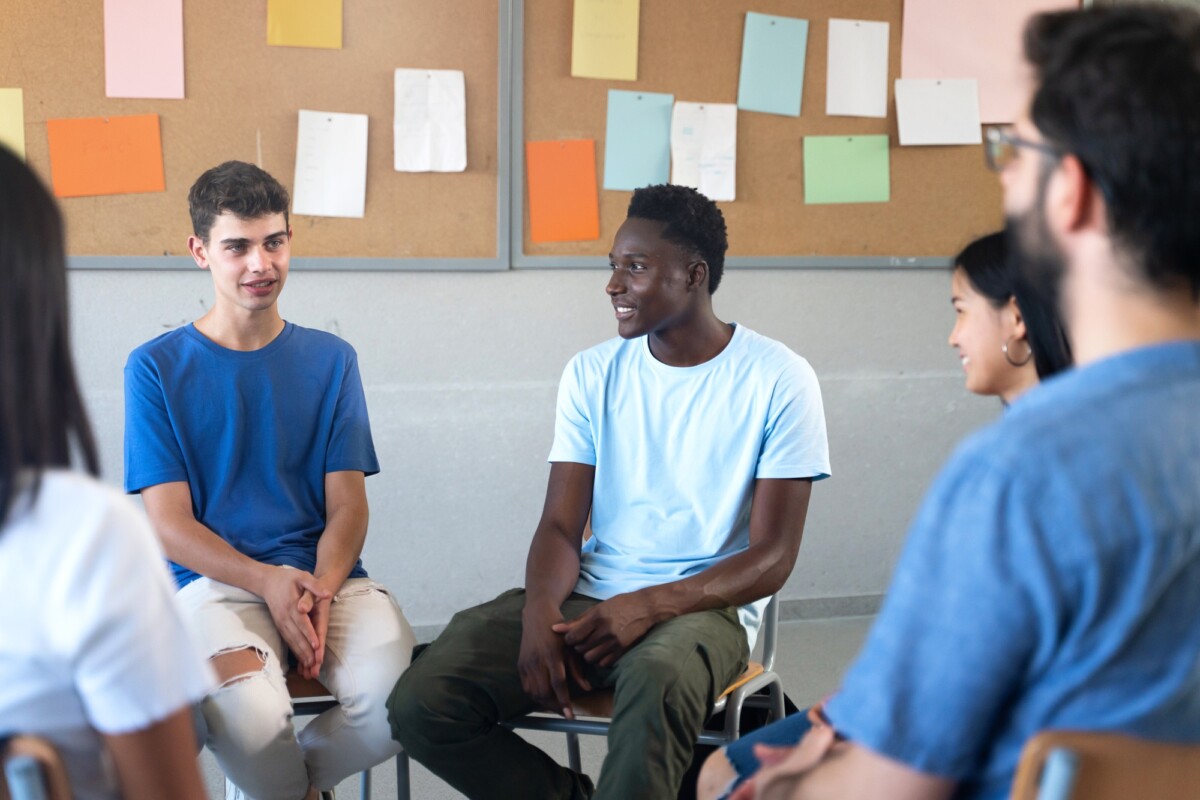
Understanding the Role of Special Education Teacher is crucial in today’s diverse educational landscape. These educators play a vital part in supporting students with varying abilities, ensuring they receive the tailored instruction necessary for their growth. Their work not only impacts individual students but also fosters a more inclusive classroom environment.
Key Responsibilities of a Special Education Teacher
- Individualized Instruction: They create customized lesson plans that cater to the unique needs of each student.
- Collaboration: Special Education Teachers work closely with parents, general education teachers, and specialists to develop effective strategies.
- Cultural Awareness in Education: They incorporate cultural sensitivity into their teaching, recognizing the diverse backgrounds of their students and adapting their methods accordingly.
Addressing Social Issues in Education
Special Education Teachers also address broader social issues in education. They advocate for their students’ rights and help raise awareness about the challenges faced by individuals with disabilities. By promoting understanding and acceptance, they contribute to a more equitable educational system.
Study smarter, not harder—Enroll online today!
What Qualifications Are Needed to Become a Special Education Teacher?
Understanding the role of a special education teacher is crucial, as they play a vital part in shaping the educational experiences of students with diverse needs. These educators not only provide tailored instruction but also advocate for their students, ensuring they receive the support necessary for success in a mainstream educational environment.
To become a special education teacher, several qualifications are essential. Typically, a bachelor’s degree in special education or a related field is required. Additionally, obtaining a teaching license or certification is crucial, which often involves passing specific exams and completing student teaching experiences.
Key Qualifications:
- Bachelor’s Degree: A foundational requirement in special education or a related discipline.
- Teaching Certification: Necessary to legally teach in public schools, often requiring state-specific exams.
- Cultural Awareness in Education: Understanding diverse backgrounds enhances teaching effectiveness and fosters inclusivity.
- Awareness of Social Issues in Education: Recognizing and addressing social challenges faced by students is essential for effective teaching.
Read Also: Where Can You Find Free AI Programs? A Complete Guide
How Do Special Education Teachers Develop Individualized Education Plans (IEPs)?
Understanding the role of a special education teacher is crucial, especially when it comes to developing Individualized Education Plans (IEPs). These plans are tailored to meet the unique needs of students with disabilities, ensuring they receive the appropriate support and resources to thrive academically and socially.
Creating an IEP involves collaboration among educators, parents, and specialists. Special education teachers assess students’ strengths and challenges, considering factors like cultural awareness in education to ensure the plan is inclusive and effective. They also address social issues in education that may impact learning.
Key Steps in Developing IEPs:
- Assessment: Conduct thorough evaluations to understand the student’s needs.
- Collaboration: Work with parents, general education teachers, and specialists to gather insights.
- Goal Setting: Establish clear, measurable goals tailored to the student’s abilities.
- Implementation: Develop strategies and accommodations to support the student in the classroom.
The Importance of Collaboration: Working with Parents and Other Educators
The role of a special education teacher is vital in fostering an inclusive learning environment. They not only provide tailored instruction to students with diverse needs but also collaborate closely with parents and other educators. This teamwork ensures that each child’s unique challenges are addressed effectively, promoting their academic and social growth.
Building Strong Partnerships
Collaboration is key in special education. Special education teachers work with parents to understand their child’s needs better. They also engage with general education teachers to share strategies and resources. This partnership enhances cultural awareness in education, ensuring that all students feel valued and understood.
Addressing Social Issues in Education
By working together, special education teachers and parents can tackle social issues in education. They can advocate for necessary resources and support systems, creating a more equitable learning environment for all students. This collaborative approach not only benefits students with disabilities but enriches the educational experience for everyone involved.
What Strategies Do Special Education Teachers Use in the Classroom?
Understanding the role of a special education teacher is crucial for appreciating the diverse strategies they employ in the classroom. These educators are dedicated to supporting students with varying needs, ensuring that every child has access to a quality education. Their methods are tailored to foster an inclusive environment where all students can thrive.
Individualized Education Plans (IEPs)
Special education teachers create IEPs that outline specific learning goals for each student. This personalized approach helps address unique challenges and strengths, ensuring that educational strategies align with individual needs.
Cultural Awareness in Education
Incorporating cultural awareness in education is vital. Special education teachers often adapt their teaching methods to respect and reflect the diverse backgrounds of their students, promoting a more inclusive atmosphere that acknowledges social issues in education.
Collaborative Learning
Collaboration is key. Special education teachers frequently work with general education teachers, therapists, and families to create a supportive network. This teamwork enhances the learning experience and provides comprehensive support for students.
How Do Special Education Teachers Support Students with Diverse Needs?
Special education teachers play a vital role in the educational landscape, ensuring that students with diverse needs receive the support they require to thrive. Their expertise not only addresses academic challenges but also fosters social and emotional growth, making their role indispensable in today’s classrooms.
Individualized Learning Plans
One of the primary responsibilities of a special education teacher is to develop individualized learning plans (IEPs) tailored to each student’s unique needs. This personalized approach helps in addressing specific learning disabilities and promotes effective learning strategies.
Cultural Awareness in Education
Cultural awareness is crucial in special education. Teachers must understand the diverse backgrounds of their students to create an inclusive environment. This understanding helps in addressing social issues in education, ensuring that all students feel valued and understood.
Collaboration with Other Professionals
Special education teachers often collaborate with other educators, therapists, and parents. This teamwork is essential for providing comprehensive support, ensuring that each student receives the best possible resources and guidance for their educational journey.
The Role of Special Education Teacher in Promoting Inclusivity
The role of a special education teacher is crucial in fostering an inclusive environment for all students. These educators not only provide tailored instruction to meet the diverse needs of students with disabilities but also promote cultural awareness in education. By understanding and respecting the unique backgrounds of their students, special education teachers help create a supportive learning atmosphere.
Key Responsibilities of a Special Education Teacher
- Individualized Instruction: They develop customized lesson plans that cater to the specific learning needs of each student.
- Collaboration: Working closely with general education teachers, parents, and specialists ensures a cohesive approach to education.
- Advocacy: Special education teachers advocate for their students, addressing social issues in education that may hinder their learning experience.
In addition to academic support, special education teachers play a vital role in social development. They teach essential life skills and promote social interactions among students, helping them navigate their educational journey. By fostering inclusivity, these educators not only enhance learning outcomes but also contribute to a more equitable society.
Study smarter, not harder—Enroll online today!
What Challenges Do Special Education Teachers Face?
Special education teachers play a crucial role in fostering an inclusive learning environment for students with diverse needs. They not only provide tailored instruction but also advocate for their students’ rights and well-being. However, the role of special education teacher comes with its unique set of challenges that can impact their effectiveness and job satisfaction.
Emotional and Behavioral Challenges
Special education teachers often encounter students with emotional and behavioral issues. Managing these challenges requires patience, empathy, and specialized strategies to create a conducive learning atmosphere. Understanding cultural awareness in education is vital, as it helps teachers connect with students from various backgrounds, enhancing their learning experience.
Resource Limitations
Another significant challenge is the lack of resources. Many special education programs are underfunded, which can limit access to essential tools and support services. This scarcity can hinder the ability of teachers to implement effective interventions, ultimately affecting student outcomes. Additionally, navigating social issues in education, such as stigma and discrimination, adds another layer of complexity to their role.
Read Also: Why Is Cultural Awareness Important in Education?
How Can Scholarship.Education Support Aspiring Special Education Teachers?
Understanding the role of a special education teacher is crucial for anyone considering this rewarding career. These educators play a vital part in fostering an inclusive learning environment, ensuring that students with diverse needs receive the support they require to thrive academically and socially.
Comprehensive Training Programs
At Scholarship.Education, we offer comprehensive training programs that equip aspiring special education teachers with essential skills. Our curriculum emphasizes cultural awareness in education, helping teachers understand and respect the diverse backgrounds of their students.
Resources for Addressing Social Issues
Additionally, we provide resources that address social issues in education. This includes strategies for managing classroom dynamics and fostering a supportive atmosphere where all students feel valued. Our goal is to prepare educators to effectively navigate the complexities of special education.
The Impact of Special Education Teachers on Student Success
The role of a special education teacher is vital in fostering an inclusive learning environment. These educators are dedicated to meeting the unique needs of students with disabilities, ensuring they receive personalized support. Understanding what a special education teacher does is crucial for recognizing their impact on student success.
Tailored Instruction
Special education teachers develop individualized education plans (IEPs) that cater to each student’s specific learning requirements. This tailored approach not only enhances academic performance but also boosts self-esteem and confidence in students.
Cultural Awareness in Education
Incorporating cultural awareness in education is essential. Special education teachers often work with diverse student populations, adapting their teaching methods to respect and reflect students’ backgrounds. This practice fosters a more inclusive classroom environment, promoting understanding and acceptance among peers.
Addressing Social Issues in Education
Special education teachers also play a crucial role in addressing social issues in education. They help students navigate social interactions, develop communication skills, and build relationships, which are essential for their overall development and success in school and beyond.
Study smarter, not harder—Enroll online today!
FAQs
-
What is a special education teacher?
A special education teacher is an educator trained to work with students who have diverse learning needs, disabilities, or developmental challenges. They adapt lessons to meet individual learning styles and provide support for academic and social growth. -
What are the main responsibilities of a special education teacher?
Special education teachers create individualized education programs (IEPs), adapt curriculum, provide specialized instruction, collaborate with parents and general education teachers, and support students with disabilities in reaching their full potential. -
What qualifications are required to become a special education teacher?
Most special education teachers need a bachelor’s degree in special education, state certification, and sometimes a master’s degree, depending on state requirements. -
Where do special education teachers work?
They work in public and private schools, special education programs, resource centers, hospitals, and specialized institutions that support students with disabilities. -
What skills are important for a special education teacher?
Key skills include patience, communication, adaptability, problem-solving, collaboration, and empathy to effectively support students with unique learning needs.





